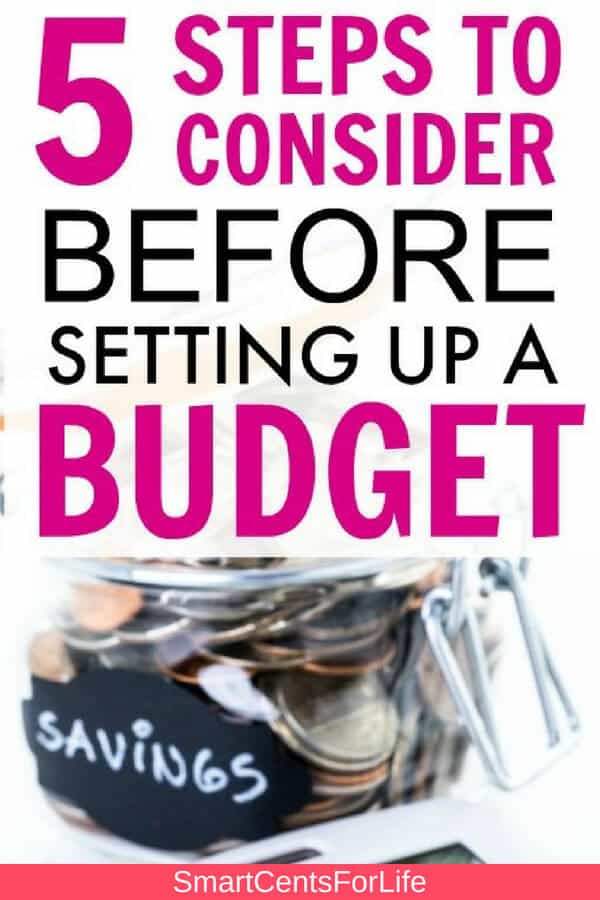5 Steps to consider before setting a budget – If you really want to manage your finances in an effective way, then setting a budget could help you reach that goal. When utilizing a simple budget plan you can track the money that comes in and control the money that goes out. Simple as that.
Probably you would like to improve your finances, save more money for a dream vacation or getting out of debt; a budget could give you the facility to reach these objectives. Every budget should be personal and according to one’s needs.
In fact, setting a budget has been proven by hundreds of people that it can help to get you out of debt. The most important thing in order to make a budget work for you is that you need to stick with it.
Also, it is important to note that there are some important aspects you may want to consider before setting a budget.
This post may contain affiliate links. That means if you purchase an item through these links, I may earn a commission at no additional cost to you. Please read the full disclosure policy for more info.
5 Essential Aspects to Consider Before Setting Up a Budget:
1. Set your goals
Why are you setting a budget? this will give you a general overview of what you really want. To do this, you would need to consider the SMART goals:
- Specific goal and trying to avoid the unambiguous ones.
- Measurable, so you stay on track and certainly a budget could help you with that.
- Attainable, so you know how to make it come true.
- Realistic goal that you are able to work for and
- Timely, so you know when you would like to reach your goal.
Related : How to Create a Budget: Budgeting for Beginners
2. Recognize your income
All the money that you earn needs to be written down. Even if you have side jobs, they will help to achieve the purpose of your goals and have more flexibility in your budget.
In the case that you have a variable income, say; some months you make more or less than others, then consider taking an average amount of the last six months. However, it is also important to not overestimate your income. The more realistic the better.
3. Assess your finances
You need to be mindfully clear about your present financial situation. Probably this is the most difficult part due to the fact that you will need to list where your money goes every month. You need to be very specific here.
Assigning categories to your expenses would give you a better understanding of the type of expenses you already have. As a rule, you should write what type of expenses are needs, savings and wants.
4. Flexibility
Sometimes you can have expenses that you either overestimated or underestimated. So, try to be flexible by adjusting these in the following month. By cutting overestimated expenses, you will have the opportunity to save some money and have things under control.
5. Keep track of your budget
Here is where the magic words “stick with it” come into place. If you are spending according to your budget, then every once in a while you should also assess if you are on the right track. If your budget is monthly, then it is not a bad idea to evaluate your expenses once a week. Tracking your budget should give you a general idea if you are on the right path to financial stability.
Keeping these 5 aspects in mind when setting up your budget would give you the tools to achieve your goals. If in any circumstances things don’t go as you expected then, just relax and try to review and evaluate the situation and go back on track with your goals. Setting up a budget could sound complicated but, in reality, it’s the key to properly managing your finances.
Recommended articles:
- 8 Simple Steps to Save Over $7,000 This Year
- How to Pay Off Debt Fast, Even With A Low Income
- How to Build an Emergency Fund and Save Your First $1000 Fast
- 10 Easy Ways to Save Money on Your Electric Bill
- 15 Smart Ways to Save Money In College
- 11 Ways to Save Money On Groceries Without Using Coupons
- How to Make $1000 Extra a Month Working from Home
Pin this post for later!
